NIL
Kirby Smart Says Most Important Item In College Football Isn't NIL Or Settlement
DESTIN, Fla. – There’s a new voice that has taken over for Nick Saban in these spring meetings that take place every year in Florida, and it’s Georgia head coach Kirby Smart. While there are plenty of coaches who can control a room, like Saban did during his time in the SEC, it’s become abundantly […]
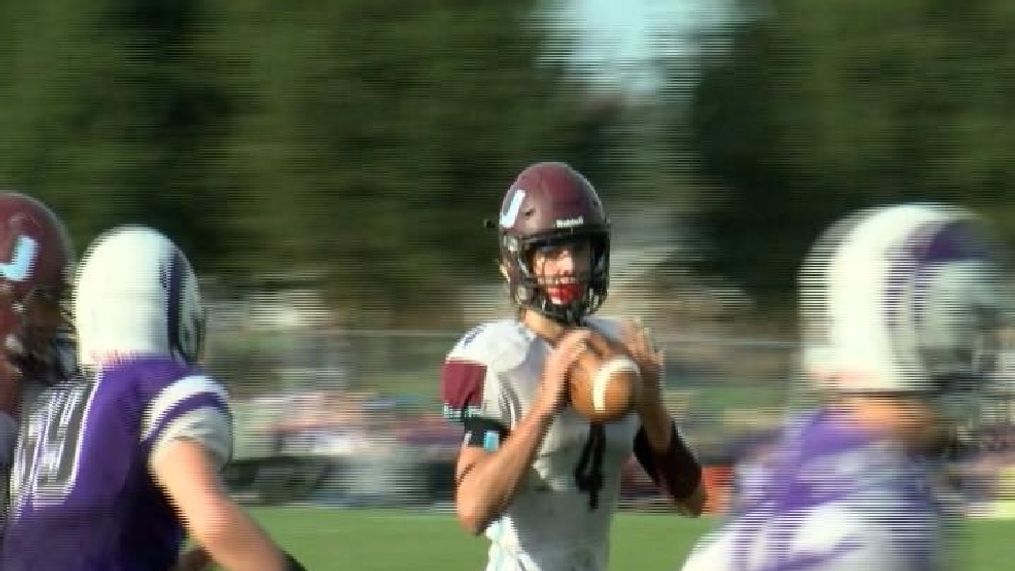

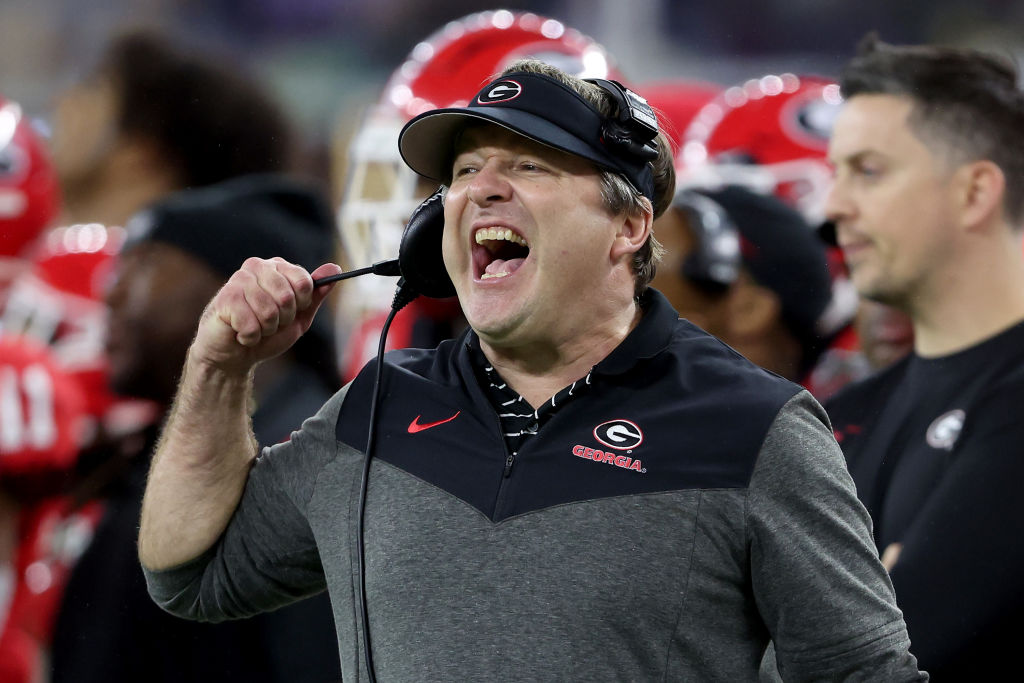
DESTIN, Fla. – There’s a new voice that has taken over for Nick Saban in these spring meetings that take place every year in Florida, and it’s Georgia head coach Kirby Smart.
While there are plenty of coaches who can control a room, like Saban did during his time in the SEC, it’s become abundantly clear that Kirby feels much more comfortable talking about the key issues that are plaguing the sport of college football.
And sure, there are plenty of voices to go around, but being the tenured head coach of a conference as big as the SEC, the need for one guy to be the voice was up for grabs the day Nick Saban announced his retirement. Now, with all the talk being centered around how much money a player will be making, or how college athletics is headed for massive change if the House settlement is approved, Smart is pointing his attention towards another hot-button issue.
If you’ve been living under a rock for the past few years, you have missed a lot when it comes to how long players are sticking around at one school. And, it’s not just about an athlete chasing a paycheck with the current NIL system. There is a contentious conversation ongoing inside meeting rooms across the country about how college leaders can control the transfer portal.
For Kirby Smart, this is the biggest issue in college athletics that is not being talked about enough in his eyes. To be honest, I tend to agree with Kirby Smart, though there are plenty of subjects that have college administrators scrambling towards the July 1 deadline of when these new rules under the House settlement would begin.
But, speaking inside the Hilton theater room on Tuesday, there was a sense of urgency in the voice of Kirby Smart while discussing what he thought was the biggest problem in college athletics, with so many coaches having differing opinions.
“I am so glad you asked that question,” Kirby Smart started. “The biggest decision that has to be made in college football right now, by far, is when the portal window is, and is there one or two. That’s not being decided by us today. A lot of people don’t even know how it’s getting decided, and who’s deciding it. We had an AFCA (coaches) meeting … we unanimously decided there needed to be one portal window, whatever that is, is what it is. It needs to happen sometime in January.”
“I think it’s really important in football to have your team your team at whatever date in January, whatever we decide that is, and then you work those guys out,” he said. “You train those guys, you lift, you prepare, you do meetings and all this preparation, and then that’s your team.”
Transfer Portal Moves Need To Be Made. 9-Game SEC Schedule?
If there ever was a time when coaches needed to come together to decide on how to approach the rules committee, that time is right now. But, until there is a ‘College Sports Commission’, decisions about the portal will not be made, at least according to Texas A&M AD Trev Alberts.
There are so many problems with the transfer portal currently, and keeping the two different windows is only leading to further chaos in the sport.
Does Kirby Smart have a case for bringing it down to just one period? Sure he does. But, getting coaches across the country to agree on when that period should be is a different story.
Everyone has an agenda, and moving the portal window to sometime in late spring would obviously cause further chaos at the moment. Now that players can leave during the spring, and some coaches are advocating for NFL-style workouts in the summer, it seems as though we are at an impasse.
Oklahoma AD Joe Castiglione says a vote on a 9-game conference schedule this week would surprise him. The CFP format needs to be decided, but he makes it clear that the powers that be need to make the regular season a priority as they head towards an expanded playoff.
“We’ll get the postseason figured out, but it’s paramount to make sure to keep the regular season relevant.”
This had more to do with fan engagement, while making sure not to diminish the regular season, which then affects the fans who are buying tickets.
Obviously, there will be some type of change down the road. But, there are schools out there that load their rosters up during the spring in hopes of finding a hidden gem from the portal. But, the noise is starting to get louder when it comes to the transfer portal, and those that participate in the CFP are paying a price.
In other news, most coaches speaking on Tuesday pointed out that it would be in the sport’s best interest if the college football playoff selected the best 16 teams in college football. So, if that were the case, how many would have made decisions based off seeding alone? That’s a rhetorical question, by the way.
While we wait on the House settlement to be either approved or denied, Kirby Smart is making sure we know about the bigger problems in college athletics. Whether you agree with him is up to you.
But, one thing we can agree on is that Kirby Smart is filling the shoes that Nick Saban once wore during these meetings, and is becoming a voice of reason for college athletics.
NIL
Bueckers Is NIL Store’s Top-Earning Female for 15th Straight Month
CHICAGO (July 10, 2025) – For the 15th consecutive month, UConn’s Paige Bueckers was the top-earning collegiate female athlete on the NIL Store. Joining Bueckers as June 2025 leaders were Duke’s Cooper Flagg as the top-earning male athlete, and the University of Connecticut as the top-selling school. The NIL Store supports more than 25,000 athletes […]

CHICAGO (July 10, 2025) – For the 15th consecutive month, UConn’s Paige Bueckers was the top-earning collegiate female athlete on the NIL Store.
Joining Bueckers as June 2025 leaders were Duke’s Cooper Flagg as the top-earning male athlete, and the University of Connecticut as the top-selling school. The NIL Store supports more than 25,000 athletes and 115 institutions nationwide.
June marked the end of Bueckers’ illustrious NIL Store run as a collegiate representative with the 2024-25 academic calendar officially coming to a close.
Bueckers’ gear will remain available for sale, however, thanks to the NIL Store’s partnership with the WNBPA which provides WNBA athletes a platform to earn proceeds on their collegiate gear.
Bueckers’ collegiate legacy gear is available alongside other WNBA legends including Kelsey Plum, Breanna Stewart, Brittney Griner, Angel Reese, Alyssa Thomas and more.
June ’25 Top-Selling Schools
-
UConn
-
Arkansas
-
UCLA
-
Duke
-
Louisville
-
Tennessee
-
Syracuse
-
LSU
-
Texas Tech
-
Florida
June ’25 Top-Earning Male Athletes
-
Cooper Flagg – Duke Men’s Basketball
-
Gage Wood – Arkansas Baseball
-
Roch Cholowsky – UCLA Baseball
-
Wehiwa Aloy – Arkansas Baseball
-
Kade Anderson – LSU Baseball
-
Kiyan Anthony – Syracuse Men’s Basketball
-
Liam Doyle – Tennessee Baseball
-
Blake Balsz – UCLA Baseball
-
Steve Angeli – Syracuse Football
-
Roman Martin – UCLA Baseball
June ’25 Top-Earning Female Athletes
-
Paige Bueckers – UConn Women’s Basketball
-
Azzi Fudd – UConn Women’s Basketball
-
Karlyn Pickens – Tennessee Softball
-
NiJaree Canady – Texas Tech Softball
-
Sarah Strong – UConn Women’s Basketball
-
Bri Ellis – Arkansas Softball
-
KK Arnold – UConn Women’s Basketball
-
Jordan Woolery – UCLA Softball
-
Hailey Toney – Texas Tech Softball
-
Megan Grant – UCLA Softball
ABOUT CAMPUS INK AND THE NIL STORE
Backed by Mark Cuban, Campus Ink expanded into the Name, Image, Likeness (NIL) space in 2021 and launched the NIL Store which serves as a merchandising solution for student-athletes and schools across the country. The NIL Store operates with the firm belief that every student-athlete has an opportunity to capitalize on their NIL and should earn industry-leading payouts. Campus Ink was founded in 1947 on the campus of the University of Illinois and was reimagined in 2015 with an office in downtown Chicago and a production facility in Urbana, Ill., where the company handles all of its own production and fulfillment.
NIL
Colleges withholding revenue-sharing contract details: How schools can remain tight-lipped on player payments
As of July 1, college athletes are being directly paid by the universities for which they play, but that doesn’t mean the schools are divulging the payments on the record. Through reporting, we know the numbers on the high end are going up. Duke quarterback Darien Mensah will earn $4 million per year for a […]

As of July 1, college athletes are being directly paid by the universities for which they play, but that doesn’t mean the schools are divulging the payments on the record.
Through reporting, we know the numbers on the high end are going up. Duke quarterback Darien Mensah will earn $4 million per year for a two-year deal at Duke. Five-star offensive line prospect Felix Ojo has a three-year deal averaging $775,000 a year with a verbal understanding that TTU will renegotiate up to $5 million. Basketball star AJ Dybantsa had an approximate asking price of $5 million before signing with BYU.
But schools do not publicly disclose amounts of revenue-sharing deals voluntarily, and whether they will ever be compelled to do so is unclear. In that way, the post-House v. NCAA settlement world is just like what came before in the era when athletes were being compensated by third-party NIL collectives.
Why are schools silent on revenue-sharing deals?
CBS Sports filed more than a dozen freedom of information requests for the revenue-sharing contracts of high-profile college football players across the country. As of publication time, six schools have provided responses — all of which were denials. Context for the denials runs the gamut.
Alabama responded to a request for QB Ty Simpson and WR Ryan Williams’ contracts by simply saying, “there are no public documents responsive to your open records request[.]” Florida declined to disclose QB DJ Lagway’s contract, stating that athletic records are exempt from Florida’s public records laws. In the past, however, Florida has shared coaching contracts with reporters.
Other schools have different justifications. Clemson denied a request made by The Post and Courier, stating that the agreements are “proprietary,” and that releasing them would put the Tigers at a competitive disadvantage. Colorado denied a request by CBS Sports for the contracts of QBs Julian Lewis and Kaden Salter, citing a state law that allows the university to “deny inspection of any name, image, or likeness contract containing personally identifiable information for any of our student athletes.” The law was signed in March by governor Jared Polis, and in his signing statement, he expressed reservations about a lack of transparency.
“While I support the bill and its goals, there are issues regarding transparency that were not addressed during the legislative process that I would like to see addressed in the future,” Polis wrote. “In particular, I have concerns about the bill’s new Colorado Open Records Act (CORA) exception regarding student-athlete contracts. While the bill’s exception is narrowly tailored, it follows an unfortunate trend of legislative proposals that ultimately impede access to official records that are arguably within the public’s interest to view. These exceptions move transparency in the wrong direction and any other proposals that further prevent or delay public access to information will be carefully reviewed.”
The bill’s sponsor, state senator Judy Amabile (who represents Boulder), told The Denver Post that the fact that athletes are not employees was the main factor in keeping the deals private.
“They’re not being paid with public money,” Amabile said. “They’re students, and students have protections, and we wanted to preserve that.”
What is NIL Go? Explaining the College Sports Commission’s initiative to monitor name, image and likeness
Will Backus
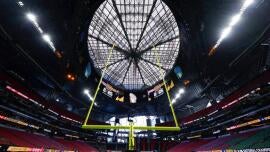
Schools have used FERPA to shield records since NIL payments were allowed in 2021. Utah has an NIL bill with similar shielding from the public, passed in early 2024, and governor Spencer Cox at the time said: “We’re at a big competitive disadvantage if other states aren’t required to release the terms of those contracts,” … “And as much as I’d like to get rid of all this, I do support the bill. I think it’s the right thing to do, put us on a level playing field and, especially because it involves young people and minors, I think it’s OK.”
The law passed after The Deseret News requested athlete NIL agreements in July 2023 via records request. The five state schools denied the request, stating that the contracts are “education records” and saying they are protected by the federal Family Education Rights and Privacy Act (FERPA). But, in October 2023, a Utah state records committee unanimously ruled that NIL agreements are not education records and should be disclosed due to the public nature of the athletes. The schools appealed to state court, and while the decision was still pending, the state passed the law shielding all deals from the public and a judge. A district court judge found that the law was retroactive and dismissed The Deseret News’ case.
UCLA, South Carolina and Florida State each cited FERPA in their denials of CBS Sports’ requests for athlete revenue-sharing agreements.
“[I]ndividual students’ NIL licensing contracts are confidential and exempt from disclosure pursuant to [FERPA] which defines an “educational record” as a record which is (1) “directly related to a student” and (2) is “maintained by an educational agency or institution or by a party acting for the agency or institution,” Florida State stated in its response. “Individual students’ NIL licensing agreements fall squarely within the definition of an “educational record” as defined by FERPA, and FSU therefore cannot release revenue sharing contracts for any student to the public without violating FERPA.”
But, is the school’s interpretation of FERPA too broad? It’s a complicated question that may lead to more legal challenges in the future, according to Robert Romano, a sports law professor at St. John’s University.
“That’d be up to a judge to decide whether or not it is or it isn’t. As of right now, they’re using it and are using it successfully,” Romano said. “I think what they’re scared of is if they release this information and the judge or the Department of Education finds out they did it in violation of the FERPA rules and regulations, they can risk federal funding. And I think that’s the issue right now. All the schools are scrambling. With everything that’s happening in this new administration, with regards to federal funding, they want to make sure that they’re not doing anything that steps over the line or could expose them to the possibility of losing any additional funding that the federal government provides, and if they release some information that could be interpreted as in violation of FERPA, well, they’re exposing themselves.”
Romano said that it would be “perfectly fine” for a school to send a revenue-sharing agreement without any identifying information, even an athlete’s name, but they choose not to do that. An issue with any legal challenge for an athlete’s records is the time it would take to fulfill. College athletics is transient, and by the time a case and its appeals work its way through a court system, a football player might be in the transfer portal or in the NFL.
So, for now, as payments to athletes increase, so will the secrecy around what they’re being paid.
NIL
Jason Caldwell’s Friday mailbag column
Greg1716: What 1 or 2 rules changes would Jason Caldwell like to see in college football? How involved – if any – is the coaching staff with data/analytics with regards to game planning, game management, roster management etc. And given the NFL is moving rapidly into incorporating and using AI now to develop analytic models […]

Greg1716: What 1 or 2 rules changes would Jason Caldwell like to see in college football? How involved – if any – is the coaching staff with data/analytics with regards to game planning, game management, roster management etc. And given the NFL is moving rapidly into incorporating and using AI now to develop analytic models would Auburn experiment with any AI?
I really haven’t thought much about it in terms of actual football being played. Mine would mostly be on the payment side of things and trying to fix that. I think they need to move to employer/employee status and having contracts if we’re going to continue paying athletes like this. Hopefully this new system will actually hold up because that would help. Auburn uses analytics in every sport. Not sure exactly how it works with football other than tendencies, scouting, etc.
NIL
Some athletes' NIL deals with collectives not holding up to new scrutiny
The new agency in charge of regulating name, image and likeness deals in college athletics sent a letter to schools Thursday saying it had rejected agreements between players and donor-backed collectives formed over the past several years to funnel money to athletes or their schools. Those arrangements hold no “valid business purpose,” the memo read, […]
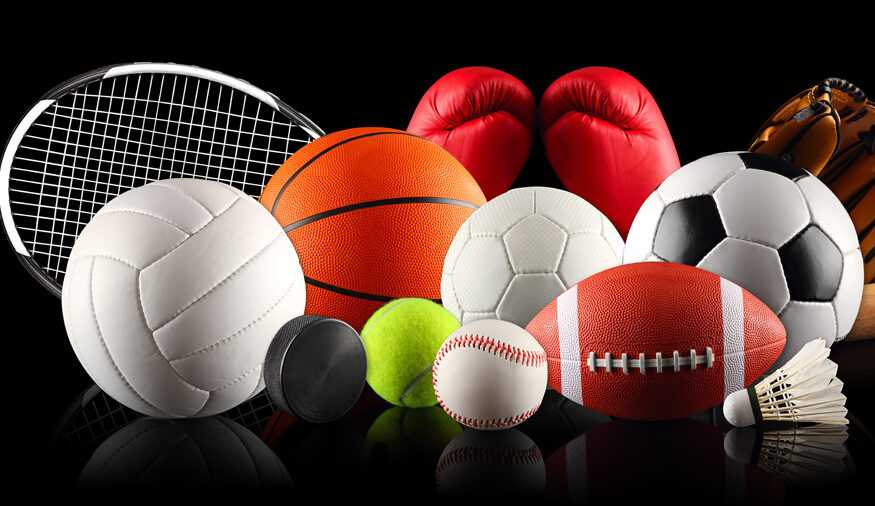

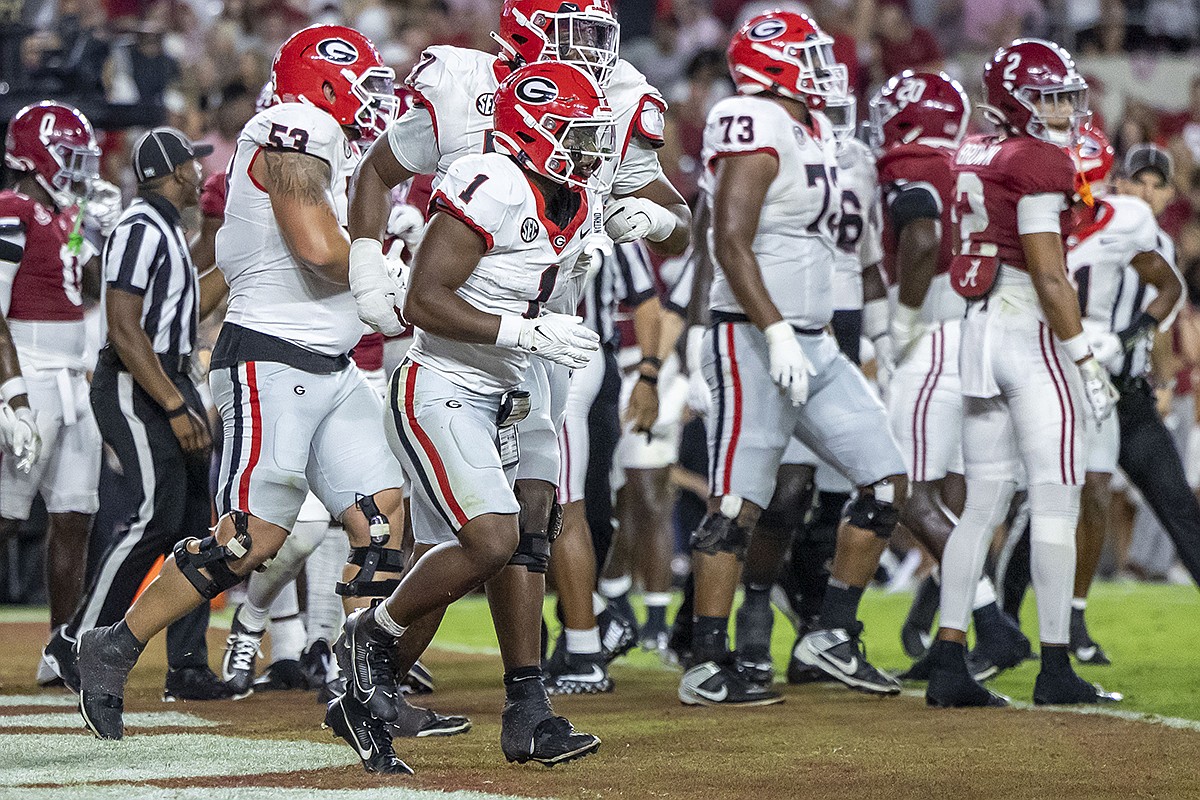
The new agency in charge of regulating name, image and likeness deals in college athletics sent a letter to schools Thursday saying it had rejected agreements between players and donor-backed collectives formed over the past several years to funnel money to athletes or their schools.
Those arrangements hold no “valid business purpose,” the memo read, and don’t adhere to rules that call for outside NIL deals to be between players and companies that provide goods or services to the general public for profit.
The letter to NCAA Division I athletic directors could be the next step in shuttering today’s version of the collective — groups that are closely affiliated with schools and that, in the early days of NIL compensation after July 2021, proved the most efficient way for schools to indirectly cut deals with players.
Since then, the landscape has changed yet again with the $2.8 billion House v. NCAA settlement that allows schools to pay the players directly via revenue sharing as of July 1.
Already, collectives affiliated with Alabama, Colorado, Georgia, Notre Dame and others have announced they’re shutting down. Georgia, Illinois and Ohio State are among those that have announced plans with Learfield, a media and technology company with decades of licensing and other experience across college athletics, to help arrange NIL deals.
Outside deals between athletes and sponsors are still permitted, but any worth $600 or more have to be vetted by a clearinghouse called NIL Go that was established by the new College Sports Commission and is being run by the auditing group Deloitte.
In its letter to the athletic directors, the CSC said more than 1,500 deals have been cleared since NIL Go launched on June 11, “ranging in value from three figures to seven figures.” More than 12,000 athletes and 1,100 institutional users have registered to use the system.
However, the bulk of the letter explained that many deals could not be cleared because they did not conform to an NCAA rule that sets a “valid business purpose” standard for deals to be approved.
The letter explained that if a collective reaches a deal with an athlete to appear on behalf of the collective, which charges an admission fee, the standard is not met because the purpose of the event is to raise money to pay athletes, not to provide goods or services available to the general public for profit.
The same would apply to a deal an athlete makes to sell merchandise to raise money to pay that player because the purpose of “selling merchandise is to raise money to pay that student-athlete and potentially other student-athletes at a particular school or schools, which is not a valid business purpose” according to the NCAA rule.
Sports attorney Darren Heitner, who deals in NIL, said the guidance “could disproportionately burden collectives that are already committed to spending money on players for multiple years to come.”
“If a pattern of rejections results from collective deals submitted to Deloitte, it may invite legal scrutiny under antitrust principles,” he said.
On a separate track, some college sports leaders, including the NCAA, are seeking a limited form of antitrust protection from Congress.
The letter said a NIL deal could be approved if, for instance, the businesses paying the players had a broader purpose than simply acting as a collective. The letter uses a golf course or apparel company as examples.
“In other words, NIL collectives may act as marketing agencies that match student-athletes with businesses that have a valid business purpose and seek to use the student’s NIL to promote their businesses,” the letter read.
NIL
The new college sports agency is rejecting some athlete NIL deals with donor-backed collectives
FILE — Camp Randall Stadium is seen during an NCAA college football game between Wisconsin and Miami of Ohio, Sept. 12, 2015, in Madison, Wis. (AP Photo/Aaron Gash, File) AP The new agency in charge of regulating name, image, likeness deals in college sports sent a letter to schools Thursday saying it had rejected deals […]
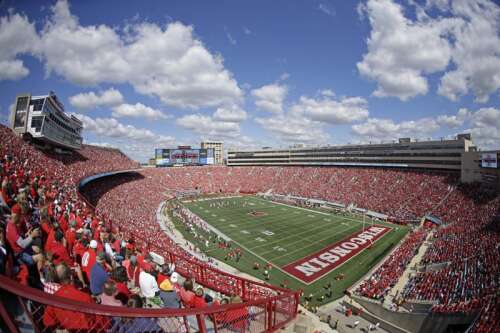
FILE — Camp Randall Stadium is seen during an NCAA college football game between Wisconsin and Miami of Ohio, Sept. 12, 2015, in Madison, Wis. (AP Photo/Aaron Gash, File)
AP
The new agency in charge of regulating name, image, likeness deals in college sports sent a letter to schools Thursday saying it had rejected deals between players and donor-backed collectives formed over the past several years to funnel money to athletes or their schools.
Those arrangements hold no “valid business purpose,” the memo said, and don’t adhere to rules that call for outside NIL deals to be between players and companies that provide goods or services to the general public for profit.
The letter to Division I athletic directors could be the next step in shuttering today’s version of the collective, groups that are closely affiliated with schools and that, in the early days of NIL after July 2021, proved the most efficient way for schools to indirectly cut deals with players.
Since then, the landscape has changed yet again with the $2.8 billion House settlement that allows schools to pay the players directly as of July 1.
Already, collectives affiliated with Colorado, Alabama, Notre Dame, Georgia and others have announced they’re shutting down. Georgia, Ohio State and Illinois are among those that have announced plans with Learfield, a media and technology company with decades of licensing and other experience across college athletics, to help arrange NIL deals.
Outside deals between athlete and sponsor are still permitted, but any worth $600 or more have to be vetted by a clearinghouse called NIL Go that was established by the new College Sports Commission and is being run by the auditing group Deloitte.
In its letter to the ADs, the CSC said more than 1,500 deals have been cleared since NIL Go launched on June 11, “ranging in value from three figures to seven figures.” More than 12,000 athletes and 1,100 institutional users have registered to use the system.
But the bulk of the letter explained that many deals could not be cleared because they did not conform to an NCAA rule that sets a “valid business purpose” standard for deals to be approved.
The letter explained that if a collective reaches a deal with an athlete to appear on behalf of the collective, which charges an admission fee, the standard is not met because the purpose of the event is to raise money to pay athletes, not to provide goods or services available to the general public for profit.
The same would apply to a deal an athlete makes to sell merchandise to raise money to pay that player because the purpose of “selling merchandise is to raise money to pay that student-athlete and potentially other student-athletes at a particular school or schools, which is not a valid business purpose” according to the NCAA rule.
Sports attorney Darren Heitner, who deals in NIL, said the guidance “could disproportionately burden collectives that are already committed to spending money on players for multiple years to come.”
“If a pattern of rejections results from collective deals submitted to Deloitte, it may invite legal scrutiny under antitrust principles,” he said.
On a separate track, some college sports leaders, including the NCAA, are seeking a limited form of antitrust protection from Congress.
The letter said a NIL deal could be approved if, for instance, the businesses paying the players had a broader purpose than simply acting as a collective. The letter uses a golf course or apparel company as examples.
“In other words, NIL collectives may act as marketing agencies that match student-athletes with businesses that have a valid business purpose and seek to use the student’s NIL to promote their businesses,” the letter said.
NIL
The new college sports agency is rejecting some athlete NIL deals with donor-backed collectives
The new agency in charge of regulating name, image, likeness deals in college sports sent a letter to schools Thursday saying it had rejected deals between players and donor-backed collectives formed over the past several years to funnel money to athletes or their schools. Those arrangements hold no “valid business purpose,” the memo said, and […]

The new agency in charge of regulating name, image, likeness deals in college sports sent a letter to schools Thursday saying it had rejected deals between players and donor-backed collectives formed over the past several years to funnel money to athletes or their schools.
Those arrangements hold no “valid business purpose,” the memo said, and don’t adhere to rules that call for outside NIL deals to be between players and companies that provide goods or services to the general public for profit.
Advertisement
The letter to Division I athletic directors could be the next step in shuttering today’s version of the collective, groups that are closely affiliated with schools and that, in the early days of NIL after July 2021, proved the most efficient way for schools to indirectly cut deals with players.
Since then, the landscape has changed yet again with the $2.8 billion House settlement that allows schools to pay the players directly as of July 1.
Already, collectives affiliated with Colorado, Alabama, Notre Dame, Georgia and others have announced they’re shutting down. Georgia, Ohio State and Illinois are among those that have announced plans with Learfield, a media and technology company with decades of licensing and other experience across college athletics, to help arrange NIL deals.
Outside deals between athlete and sponsor are still permitted, but any worth $600 or more have to be vetted by a clearinghouse called NIL Go that was established by the new College Sports Commission and is being run by the auditing group Deloitte.
Advertisement
In its letter to the ADs, the CSC said more than 1,500 deals have been cleared since NIL Go launched on June 11, “ranging in value from three figures to seven figures.” More than 12,000 athletes and 1,100 institutional users have registered to use the system.
But the bulk of the letter explained that many deals could not be cleared because they did not conform to an NCAA rule that sets a “valid business purpose” standard for deals to be approved.
The letter explained that if a collective reaches a deal with an athlete to appear on behalf of the collective, which charges an admission fee, the standard is not met because the purpose of the event is to raise money to pay athletes, not to provide goods or services available to the general public for profit.
The same would apply to a deal an athlete makes to sell merchandise to raise money to pay that player because the purpose of “selling merchandise is to raise money to pay that student-athlete and potentially other student-athletes at a particular school or schools, which is not a valid business purpose” according to the NCAA rule.
Advertisement
Sports attorney Darren Heitner, who deals in NIL, said the guidance “could disproportionately burden collectives that are already committed to spending money on players for multiple years to come.”
“If a pattern of rejections results from collective deals submitted to Deloitte, it may invite legal scrutiny under antitrust principles,” he said.
On a separate track, some college sports leaders, including the NCAA, are seeking a limited form of antitrust protection from Congress.
The letter said a NIL deal could be approved if, for instance, the businesses paying the players had a broader purpose than simply acting as a collective. The letter uses a golf course or apparel company as examples.
Advertisement
“In other words, NIL collectives may act as marketing agencies that match student-athletes with businesses that have a valid business purpose and seek to use the student’s NIL to promote their businesses,” the letter said.
___
AP college sports: https://apnews.com/hub/college-sports
-

 Technology2 weeks ago
Technology2 weeks agoPet fitness and wellness trends for a healthier and happier dog
-

 College Sports2 weeks ago
College Sports2 weeks agoWAC to Rebrand to UAC, Add Five New Members in 2026
-

 Motorsports2 weeks ago
Motorsports2 weeks agoWhy Cosmetics are Making Up for Lost Time in Women’s Sports
-

 College Sports3 weeks ago
College Sports3 weeks agoAlabama Basketball
-

 Professional Sports3 weeks ago
Professional Sports3 weeks agoFrancis Ngannou sends Dana White a message following Jon Jones' shock UFC retirement
-

 College Sports2 weeks ago
College Sports2 weeks agoA new era of Dickinson hockey begins behind the bench – The Dickinson Press
-
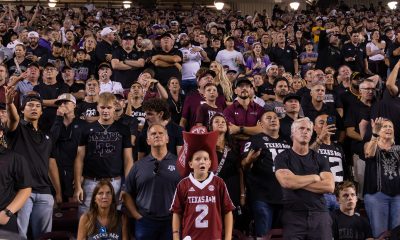
 Sports3 weeks ago
Sports3 weeks agoSEC Conference imposing a fine will create the opposite effect.
-

 Motorsports2 weeks ago
Motorsports2 weeks agoNASCAR This Week – Patriot Publishing LLC
-

 Health2 weeks ago
Health2 weeks agoFlorida assault survivor shares hope for change with new mental health law
-

 Youtube2 weeks ago
Youtube2 weeks agoFunniest MLB rain delay moments

































